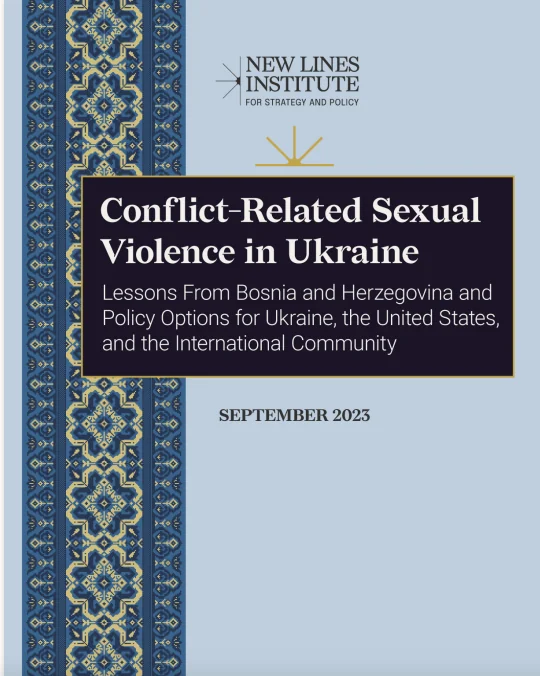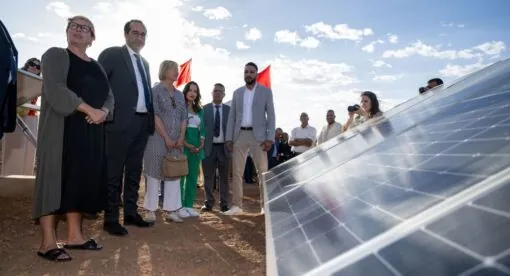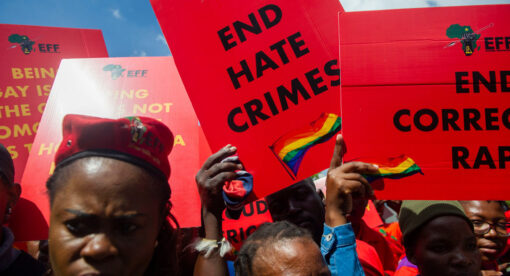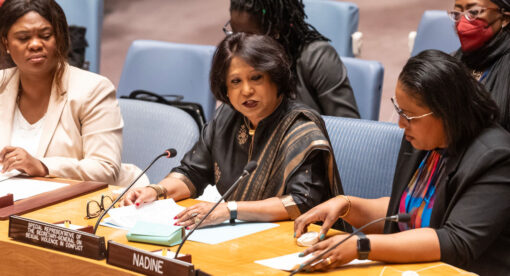Executive Summary
Since the start of the conflict between Russia and Ukraine in 2014, there have been countless reports of conflict-related sexual violence (CRSV) committed by the Russian forces against Ukrainian civilians of all ages and genders. Women in particular have faced extensive sexual violence during this conflict; they have reported being gang raped, having their families be forced to watch Russians raping them, being branded by soldiers after their rapes, being held as sexual slaves, and being raped until they are pregnant – all of which act as a deliberate method to subjugate the survivors and further break down societal norms and bonds. The international community must react swiftly, and the response must be survivor-oriented toward justice.
Similar to Ukraine, in Bosnia-Herzegovina people of all ages, genders, and sexual orientations were subjected to extensive CRSV, and many of the survivors still have not received justice. The international community must learn from Bosnia to better prepare its response to Ukraine and to aid trauma-informed social reconstruction postwar so that it does not take 30-plus years for survivors to come forward and for communities to heal. This report provides a roadmap for the international community, Ukraine, and the United States to ensure that Ukrainian CRSV survivors are met with survivor-centered reparative justice in a timely manner.
Recommendations
For the International Community
1. Universal jurisdiction provides recourse for victims and survivors that extends far beyond the reach of national courts, which are often backlogged and politicized. States should use the principle of universal jurisdiction and their own national laws and court systems to bring perpetrators of CRSV to justice on behalf of Ukraine.
2. The international community needs to band together under the legal umbrella of the 1948 Genocide Convention to prevent more genocidal acts from occurring, such as the forcible transfer of Ukrainian children to Russia.
3. A thorough inclusion of the Women, Peace, and Security agenda and conceptions of feminist peace must be present during all considerations of peace between Russia and Ukraine in the future. During any future peace talks, women and survivors of CRSV must be meaningfully included.
4. There are numerous resources for survivor-centered CRSV responses, notably the Guidebook on State Obligations for Conflict-Related Sexual Violence, which the international community should be using to mitigate and respond to sexual violence in this conflict.
5. The international Register of Damages must work to incorporate victims’ and survivors’ inputs and ideas when creating a compensation plan.
6. As with all responses to the conflict, a survivor-centered approach is necessary for holistic, restorative, and positive peace.
For Ukraine
1. The creation of a domestic registry of losses and damages can ease restrictions to access for survivors and complement the international Register of Damages.
2. Victim-oriented reparations need to be part of the ongoing discussion of state-centered reparations. The reparations also must go beyond strictly financial considerations and should include assistance like legal counseling, psychosocial support, and health care.
3. Survivors must be provided with free legal aid so they are not further bearing the cost of seeking justice.
4. The Ukrainian Parliament should pass the proposed bill by the Committee on Law Enforcement Activities that addresses the limitation for the pretrial investigation, regarding the Criminal Procedure Code of Ukraine on Improving the Procedure for Conducting Pretrial Investigations and Trials in Criminal Proceedings Regarding Crimes Related to Sexual Violence Committed in Conditions of Armed Conflict.
5. National investigations and documentation of CRSV crimes should align with the standards laid out in the International Protocol on the Documentation and Investigation of Sexual Violence in Conflict.
6. If Russia succeeds in its illegal occupation and annexation of parts of Ukraine, the rights of Ukrainian victims in these areas could be jeopardized. The Ukrainian government should look at the barriers placed on accountability and justice in Bosnia and begin to prepare how to move toward justice with this in mind.
7. Ukraine should move to put legal protections in place for children born of wartime rape. Bosnia’s legislation, which recognizes children born of wartime rape, is groundbreaking; Ukraine should not wait 30 years to enact such important legal measures.
8. Ukraine must not shy away from investigating and prosecuting Ukrainians who committed war crimes against their own people or against those aligned with Russia during the conflict.
9. Psychosocial support must be made available holistically and sustainably to survivors of CRSV, and it is critical to ensure that all victims of CRSV, including men, those with diverse SOGIESC (sexual orientations, gender identities and expressions, and sex characteristics), and other groups are supported.
10. The use of technology should be considered to help CRSV survivors in court proceedings through mechanisms such as face filtering or voice alterations during testimony.
For the United States
1. The U.S. government should use its immense intelligence resources to ensure the Presidential Memorandum on Accountability for CRSV is being used to the fullest extent in order to designate sanctions for perpetrators of CRSV in Ukraine.
2. Congress should work to strengthen U.S. laws on atrocity crimes by enacting legislation to prevent and punish crimes against humanity (CAHs) to fill the loopholes that allow for the U.S. to be a “safe haven” for perpetrators of CAHs.









